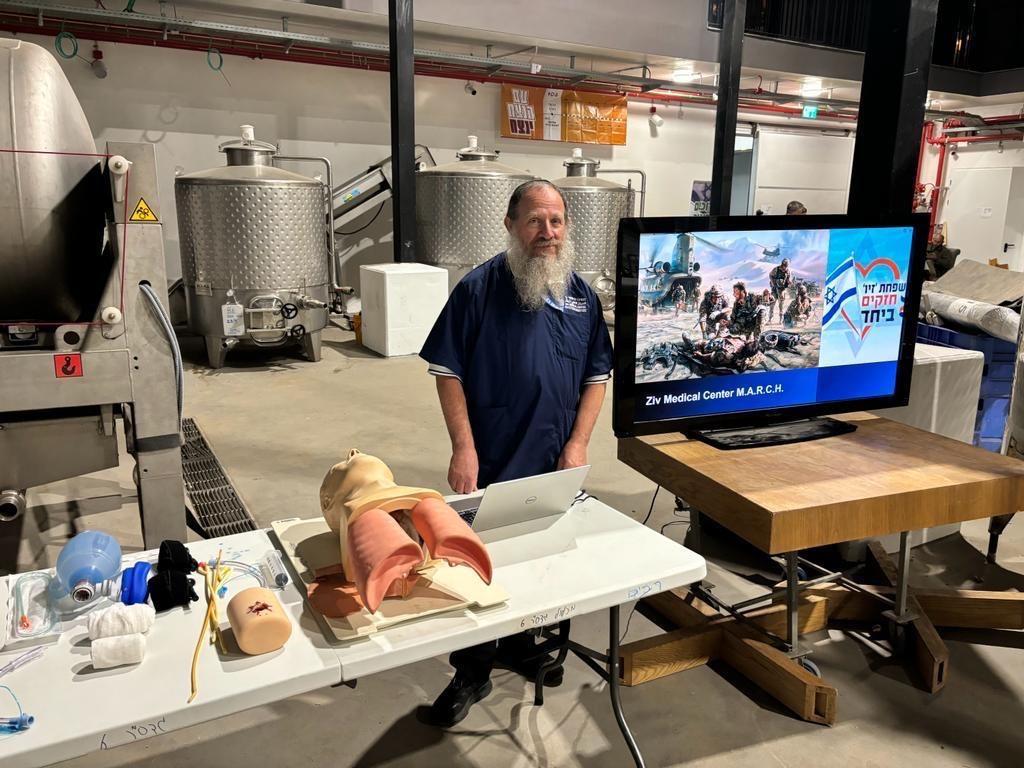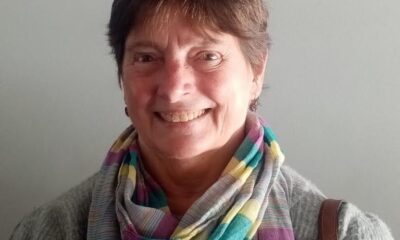
Israel

SA emergency specialist making a critical contribution
When war erupted in Israel nearly a year ago, Johannesburg emergency physician Professor Efraim Kramer knew where he needed to be. He was sure that his more than four decades in trauma and emergency care could make a life-saving difference.
“I did what thousands of Jewish doctors around the world did. I volunteered. This is what we do. It is who we are,” he says.
Kramer, 69, is a specialist in emergency, disaster, and mass-gathering medicine, known for assisting FIFA Medical during soccer World Cup tournaments. He has been involved in medical missions after tsunamis, volcanoes, earthquakes, and floods; as well as with hospital emergency protocols during the COVID-19 pandemic.
After the 7 October massacre, he contacted MiluEM, a network of international volunteer emergency medicine specialists supporting Israel during times of crisis. “I sent through all my documentation and waited to hear back,” he says.
Despite the overwhelming number of volunteers, Kramer’s remarkable skillset caught the attention of the Israeli Health Ministry. He was chosen to assist medical teams in the north, an area facing increasing threats, bombs, and fires caused by rockets launched by Hezbollah from Lebanon.
“I was asked to go to Safed in the north for two weeks, I offered to go for six.” He has since been back to offer more of his time.
“My primary function was to help make the hospitals ready for wartime injuries, and to help keep the teaching system going while lecturers were engaged in active service,” he says.
Kramer was assigned to Ziv Medical, the main hospital in Safed, serving the culturally and religiously diverse population of the Galilee and the Golan Heights. He also conducted training throughout the region.
“More than 50% of the staff there are Arabs and Druze who did not have the same emergency training experience as those who served in the army. They were not battle ready,” he says.
War injuries require a different level of care than typical cases like falls or car accidents, he explains. High-velocity shrapnel wounds cause massive bleeding and extensive damage, demanding specialised techniques to control blood loss and stabilise patients. These injuries often involve massive, severe wounds, making quick and precise treatment crucial for survival.
Kramer played a vital role in enhancing the hospital’s preparedness. His hands-on approach and wealth of knowledge ensured that healthcare workers were equipped to manage the influx of wartime casualties if and when needed. From triage to trauma care, Kramer’s presence has been a beacon of hope in an otherwise bleak landscape.
The Galilee is sparsely populated with small moshavim and no major highways, “One of the main concerns is treating injured people who are unable to be evacuated due to roads being blocked by damage from rockets or fires,” he says. “People on these kibbutzim and moshavim need training on how to save lives should they not be able to get to hospitals.”
The area is hot and rockets spark dangerous bushfires. “Farmers and community members are the ones who put out the fires, using hoses. There are no fire brigades. Helicopters are being used elsewhere in war operations and sometimes farmers get injured and they are far from a hospital,” Kramer says. “Communities have to know how to treat on sight because they have no other choice.”
Kramer also addressed protocols and equipment at makeshift casualty centres, set up in different parts of the Golan for people to get treated before being transferred to hospital.
“The average person I came across was extremely resilient, they just get on with it. They go to work, kids go to school, sirens go off, shopping gets done, fires break out, and life goes on. It’s when you start talking to people that you realise the level of anxiety and stress and the constant worry about coming to work one day and hearing that your home has been bombed. The nurses take strain,” he says.
Everyone has been affected in some way.
“From the taxi driver who used to see 1 000 tourists a day to hardly seeing any; to the felafel shop owner who has very few patrons; to the many displaced people I worked with at the hospital who have been evacuated from their homes and are living in a hotel room. The Arab villages are being bombed. Everyone in that area is affected no matter who you are. Druze, Christians, Muslims, and Jews are all impacted.”
Hospitals in the region have turned underground parking lots into wards, with intensive care units and operating theatres. “The emergency department at Ziv Hospital is a bomb shelter. It has been built this way,” he says. “If a siren goes off, you close the doors and it is a self-contained safe area. This is how Israelis live, it has been like this for years.”
Kramer says Israelis are grateful to all volunteers.
“We are not tourists, we have come to help and just being there makes a big difference. It gives them something, makes them feel that they are not alone, that there are people in the world who care,” he says.
“There is tremendous camaraderie and solidarity regardless of your ethnicity and religion. Bakeries send boxes of pastries, deliveries of hamburgers and felafels come from people who have travelled far.”
Kramer’s every need was taken care of, from housing at a Chabad apartment to shul services at the hospital, frequented by Jews of diverse backgrounds. “Everyone is looking after everyone else, doing the best they can. Life goes on, it has to. There is a war, but people carry on. Israel does everything possible to save lives, that’s who we are.”
Kramer’s commitment to saving lives transcends borders. His decision to step forward during Israel’s darkest hour exemplifies the spirit of solidarity and humanitarianism that has become so crucial in this time of crisis.










